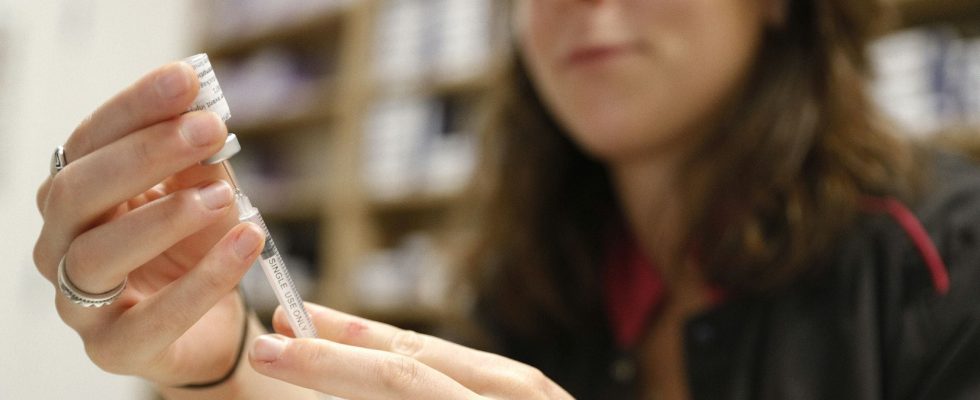This is seemingly reassuring news: this year, the flu epidemic is starting later and less strongly than a year ago. On Wednesday December 13, Public Health France announced 1,864 visits to the emergency room for this reason this week, compared to 6,569 last year, at the same period. Ditto for hospitalizations: 253 this week, compared to 654 in 2022 at the same time. Eight continental regions are at the “pre-epidemic” alert level and only one has exceeded the so-called “epidemic” thresholds where all French regions were already in the red in 2022.
Good news ? For the moment, because on closer inspection, it seems difficult to imagine that the winter will be mild. In reality, health conditions nevertheless remain rather favorable for another difficult year: “The winter months ahead will be a little complicated in terms of respiratory virus epidemics. We can expect a virulent seasonal flu “, says Antoine Flahault, epidemiologist at the Institute of Global Health, a major specialist in this infection which is still responsible for 10,000 deaths per year on average in France.
Regarding the flu, 2022 is a bad point of comparison. The flu peak had been one of the worst in the decade, in particular because of a recovery effect after the Covid-19 confinements which had almost eliminated the virus from circulation. The wave observed was also one of the earliest. On the other hand, compared to the average from 2015 to 2019, closer to “normal”, the current season takes on a much more threatening aspect. It actually starts earlier, and stronger.
H3N2, deadlier
It must be said that many aggravating factors come together, to the great dismay of caregivers. According to the latest analyzes from Public Health France, the H3N2 variant, one of those which has been circulating since 2009, is gaining ground in France, and it is not excluded that it will become the majority, as is the case. This was the case last year. However, “epidemics caused by the H3N2 influenza virus kill more people than those caused by H1N1, particularly because it is more serious among the elderly, the most susceptible to this disease,” explains Professor Flahault.
Among the 24 viruses belonging to H3N2 detected by the Sentinels, CNR, and Renal surveillance networks, all are “weakly reactive” to the vaccines distributed, specifies Public Health France. “For the moment this escape is purely immunological and not yet clinical. Will there be more hospitalizations and deaths? This is the real concern but we will only have the answer once the epidemic is well established. advanced”, nuance the epidemiologist Antoine Flahault.
The vaccination campaign launched on October 17, two weeks after the Covid-19 campaign, has also fallen behind schedule, particularly in nursing homes where uptake is currently lower than in other years despite a particularly high-risk population. In total, around 1 million fewer doses were distributed compared to 2022, according to IQVIA Pharmastat data made available by the government. “There is perhaps a trivialization effect” because of the multiple campaigns, conceded Health Minister Aurélien Rousseau on Wednesday.
A timid vaccination
Traveling to a pharmacy in the 19th arrondissement of Paris with Agnès Firmin Le Bodo, Minister for Health Professions, Aurélien Rousseau called for “a rebound in vaccination” against Covid and flu, to “have a good holiday” and so that “hospitals are not overwhelmed”, while other respiratory diseases are also numerous and intense this season.
Finally, if barrier gestures are mainly respected when it comes to Covid-19, they are much less so for the flu, warns Public Health France based on its surveys. “There is a problem in France with the appropriation of routine barrier gestures. Even being sick is not enough to adopt the mask, even though it is effective against transmission,” regrets Sandrine Randriamampianina, one of those responsible. of the public agency.
The absence of a mask in transport, in the event of symptoms suggesting an infectious disease or in the presence of people at risk, is of particular concern to Public Health France: “We have the impression that the French have not taken responsibility”, adds Dr Caroline Semaille, general director of the institution. As New Year’s Eve approaches, she recommends putting it back on, airing it several times a day and washing your hands regularly.
.
